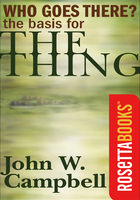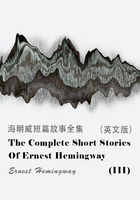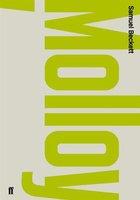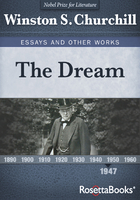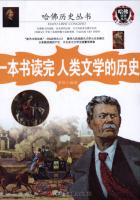The seventies. Two words that have won a million British political arguments. All countries have their difficult eras – periods of national embarrassment, of slipping confidence, of decline, of crisis, both real and imagined. We are in one now. But for Britain since the Second World War, by common consent for decades now, the worst of times came between the election of Edward Heath in 1970 and the election of Margaret Thatcher in 1979.
Here is Tony Blair, speaking at the 2005 Labour Party conference, shortly after the death of perhaps the most tainted seventies prime minister of all, James Callaghan:
When I listened on Sunday to the tributes to Jim Callaghan, I recalled the 90th birthday party we gave for him at Downing Street a few years back. Around the room: Denis Healey talking to Roy Jenkins; Tony Benn with Shirley Williams. Michael Foot, Jack Jones. What brilliance; and what a pity … They were great people. But they were not ready [before 1979] to see change was coming … And if they had been, how many fewer lives would have been destroyed? How much harsh and bitter medicine for some of the poorest in our society might have been avoided?
And here is David Cameron, barely a teenager when the seventies ended, still feeling he should include a passage about the decade in a speech to the think tank Demos in 2006:
Economic decline was embodied in inflation, stagnation and rising unemployment … deteriorating industrial relations: unions versus management, workers versus the bosses … In 1950 1,389,000 working days were lost to industrial action. By 1979, this had multiplied to 29,400,074 – the highest on record. Margaret Thatcher set out to deal not only with the problems of this British disease but also with its causes … With huge courage and perseverance, she turned Britain into a different country.
I was born in 1969. The politics of the seventies, even in their broadest sense, are in the blurriest margins of my childhood memories. In 1974, in retrospect around the high-water mark of radical hippiedom in provincial England, I remember mysterious hairy men coming and going between terrifying banks of nettles to a disused glasshouse they had turned into an 'arts centre' behind our back garden in the Hertfordshire suburbs. In the feverish summer of 1975, a boom time for plots and protests in Britain, I remember being frustrated on holiday in Suffolk by the first test-cricket match I had tried to follow. With England close to victory, the match, inexplicably to my mind, was called off. Saboteurs seeking the release from prison of an East End robber I had never heard of had poured oil on the wicket. Two years later, in the snowy, bad-tempered winter of 1977 – a dress rehearsal, it turned out, for the Winter of Discontent the year after – I remember my father, then a colonel in the Royal Engineers, working late and seeming slightly irritable. The firemen were on strike and he had suddenly become Kent's chief fire officer. And in the slow grey spring of 1979, with Margaret Thatcher moving seemingly unstoppably towards Downing Street, I remember watching the election build-up on television in my grandmother's bedroom. I remember feeling sorry for Callaghan, without knowing exactly why.
I can't recall much else. But I have been hearing what was wrong with Britain and British politics in the seventies all my adult life. No other political theme has been as unrelenting. The seventies were grim. The seventies were the hangover from the sixties. The seventies were violent. The seventies were a dead end. Above all: we don't want to go back to the seventies.
The decade of Watergate and Baader Meinhof, of world recession and the oil crisis, was a jarring period for most wealthy countries, just like the current one. Yet Britain's problems in the seventies were widely seen at the time – and since, by foreign as well as domestic commentators – as among the worst in the West. Since then, Britain has arguably changed more than any other rich nation. Part of this transformation is down to the power of British prime ministers with large parliamentary majorities to impose their domestic policies, which is greater than in most democracies, and to the effectiveness at this task of Margaret Thatcher in particular. But her eighties majorities and policies and ways of operating politically were, in a substantial sense, products of the previous decade. They were reactions against the 'failures' of the seventies, a counter-revolution against its consensuses, a determination not to repeat its 'mistakes'.
I grew up in the eighties and nineties basically believing the traditional story of the British seventies. After all, it was not just Thatcherites who told it: left-wing people would scorn or regret the Callaghan years; liberals would condemn the brutality towards Irish republicans under Edward Heath; almost no one had a good word for the Harold Wilson administration of 1974–6.
Yet occasionally this version of the seventies would seem too neat. First, there was the question of seventies popular culture. Almost as soon as that decade was over, people had started reviving its tastes. By 2000, as far as such things can be measured, the seventies had probably even overtaken the sixties as the British nostalgia market's favourite. How had the dead-end Britain of the seventies produced such a flowering of pop music, fashion and television? Some of it could be attributed to the stimulus of bad times – seventies Britain as a kind of Weimar Republic, a spooky parallel often invoked under Wilson and Callaghan – while some of the recurring appetite for seventies culture could be put down to simple generational nostalgia and love of kitsch.
But these explanations have a blind spot. If Britain was so sickly in the seventies, where did people get the money at the time to buy so many records and bold pairs of trousers? A poster campaign mounted by the Labour Party in 2005 inadvertently provided an answer. 'Lowest Unemployment for 29 Years', the posters read in fat pink seventies letters. For anyone who also knew about another, more famous political billboard concerning the Labour Party and unemployment – Saatchi and Saatchi's corrosive 'Labour Isn't Working' campaign for the Conservatives against the Callaghan government in 1978 – the 2005 posters came as an unexpected corrective. Unemployment in the seventies, taken at the time to be a great symptom of political failure, and notorious as such ever since, was actually low by modern standards, even during the long economic boom of the Blair years.
In 2004, the respected radical think tank the New Economics Foundation devised a new index of national economic, social and environmental well-being called the Measure of Domestic Progress (MDP). By this measure the best year in Britain since 1950 turned out to be, rather astonishingly, 1976 – the year of the IMF crisis, of Wilson's undignified resignation, of the disillusioned fury of the Sex Pistols and British punk rock. I read the British press reports about this finding with some scepticism. What pleasures had 1976 offered except for a famously hot summer? Then, later in 2004, I came across an interview with the Sex Pistols' singer Johnny Rotten in an old issue of the New Musical Express from the seventies. On his band's biggest and bleakest single, 1977's 'God Save the Queen', he had famously sung that England had 'no future'. Now it was late December 1978; the Sex Pistols had split up and the Winter of Discontent was starting to bite. Rotten, who had reverted to his sober actual surname Lydon but was living surrounded by half-drunk cans of lager, did the interview from bed. Yet the interviewer also noted some details that told of a different seventies:
John Lydon lives in the upper maisonette of the end terrace of a row of sturdily built Victorian houses on the Fulham/Chelsea border. He picked it up very cheaply indeed shortly before the beginning of the current property boom. It was, he says, one of the sharpest things he ever did …
This book is not a complete rewriting of the decade. Something profound and unsettling did happen to Britain in the seventies, and Britons have been living with the consequences ever since. At the very least, the British seventies showed that an old, stable, supposedly exemplary democracy can have a crisis of confidence. During the most turbulent middle years of the decade, the director general of the National Economic Development Council, or 'Neddy', one of those vanished seventies institutions where trade unions, government and business would attempt to collaborate for the greater good – or seem to collaborate for their own good – was a worldly and well-connected civil servant called Ronald McIntosh. He kept a diary. His entry, no grimmer in tone than those for many other dates, for 5 August 1975 read: 'Going to work I ran into Len Neal [another well-connected political fixer]. I asked him how he was, to which he replied, "Like everyone else, waiting for the collapse."'
Yet not all of the seventies was like this. In politics, things are never just moving in one direction, and especially not for an entire decade. For many political people in Britain in the seventies, the time was dominated not by Heath and Thatcher and Callaghan but by the rise of environmentalism, or feminism, or the Gay Liberation Front, or Rock Against Racism, and other new forms of politics with their own rhythms and preoccupations, only sometimes connected to those of the House of Commons. In the London listings magazine Time Out in the early seventies, between the sections for children's activities and exhibitions, there used to be a section called 'Revolution'. This is an entry from 1970:
COMMUNITY ACTION IN CABLE STREET Tenants in the Cable Street area have … a piece of previously derelict land that they seized and cleared. As soon as they did this, of course, the council suddenly discovered the land was theirs and that they needed it. But the tenants threatened to withdraw their kids from the local schools, and made contacts with local TV … who also made militant noises. The council gave in, so the tenants now have their own adventure playground.
British politics in the seventies, for all the gothic prose it usually prompts, was about moments of possibility as well as periods of entropy; about stretches of calm as well as sudden calamity. Politics was rawer and more honest – in the sense that conflicts between interests and ideologies were out in the open – than perhaps we are used to nowadays. It was also more obviously connected to everyday life – not just through the much higher turnouts at general elections, but through the disruptions wrought by the strikes and other shocks, by voters' living-room lights suddenly going out. And where all this was leading, finally, was much less fixed than we have tended to assume since. Right up until the last days of the 1979 general election, Margaret Thatcher was not the only possible answer to the questions the decade posed. Hindsight is a great simplifier, and the seventies as an era has been simplified more than most.
This book is not intended to be a traditional, encyclopedic history of a decade. It is the story of a search – my search – for the truth about an era, as much as the story of that era. This book tries to select and scrutinize – for in single, sometimes forgotten events the essence of a time quite often lies – rather than painstakingly list and summarize. It is mainly about the politics of the British seventies, broadly defined, rather than the country's wider culture during the period, which already has its own enormous and nearly exhaustive literature, and which has been dulled as a tool for understanding the mood and events of the period through overuse and carelessness. I have lost track of how many times I have read or heard that the punk revolt of 1976–7 was a 'reaction' to the Winter of Discontent of 1978–9. Of course, popular culture can tell us about an era's politics, intentionally and otherwise, but sometimes sifting it for such evidence, which anyway can be indistinct or ambiguous, leaves you studying political life at one remove. In the seventies, the essence of politics was often the picket line or the think-tank pamphlet – the clash of interest groups and ideas at its starkest. Much of what is most compelling and important about the period is right there, in its everyday political life.
Hopefully this book will restore some of the vivid complexity of the decade as it was actually experienced. Hopefully it will capture something of the seventies' political protagonists, many of them very old now, before they vanish from sight. And British politics in the seventies may come to seem both more fascinatingly alien and more like what has happened since.
Andy Beckett
London, January 2009


